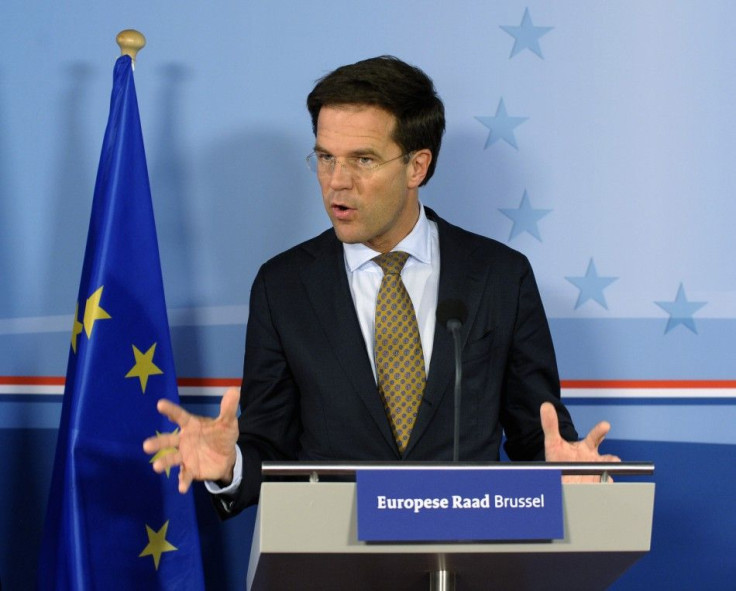New Speed Limit In The Netherlands? Dutch Prime Minister Makes Move To Cut Pollution

Dutch Prime Minister Mark Rutte cut the speed limit in the Netherlands to 100km/hr (62 mph) from 130km/hr (80mph) on Wednesday, in order to reduce nitrogen pollution in the country. A Dutch court in May found that Dutch building and farming permits broke European Union law on protecting nature reserves from nitrogen pollution.
Rutte wants the Netherlands to build 75,000 homes next year, but in order to go forward with the project, he would have to enact policy to reduce nitrogen emissions in some form. He therefore chose to reduce the speed limit, a measure he calls "rotten" but necessary.
"No-one likes this," Rutte said. "But there's really something bigger at stake. We have to stop the Netherlands from coming to a halt and jobs being lost unnecessarily." Between 7 p.m. and 6 a.m., Dutch drivers will be allowed to drive at the former maximum speed limit at 130km/hr, as there are fewer drivers on the road at those times.
Farmers in the Netherlands are also angry over allegations that agriculture contributes to the nitrogen pollution crisis facing the country. In October, farmers drove tractors on highways to protest measures that would reduce emissions from the farming industry.
The Netherlands will now have one of the lowest speed limits in Europe, along with Cyprus.
Reducing speed limits may not only lower nitrogen emissions but also decrease fossil fuel consumption. A New York Times report from 2008 stated that when the U.S. had 55 mph as its national speed limit, the country saved 2.56 billion gallons of gasoline a year. The limit was abolished in 1995.
The Netherlands' neighbor, Germany, does not have a speed limit on its autobahn highway system. German Transport Minister Andreas Scheuer said in January that he opposes measures to impose a speed limit in order to decrease pollution, arguing the idea "goes against all common sense."
© Copyright IBTimes 2024. All rights reserved.





















